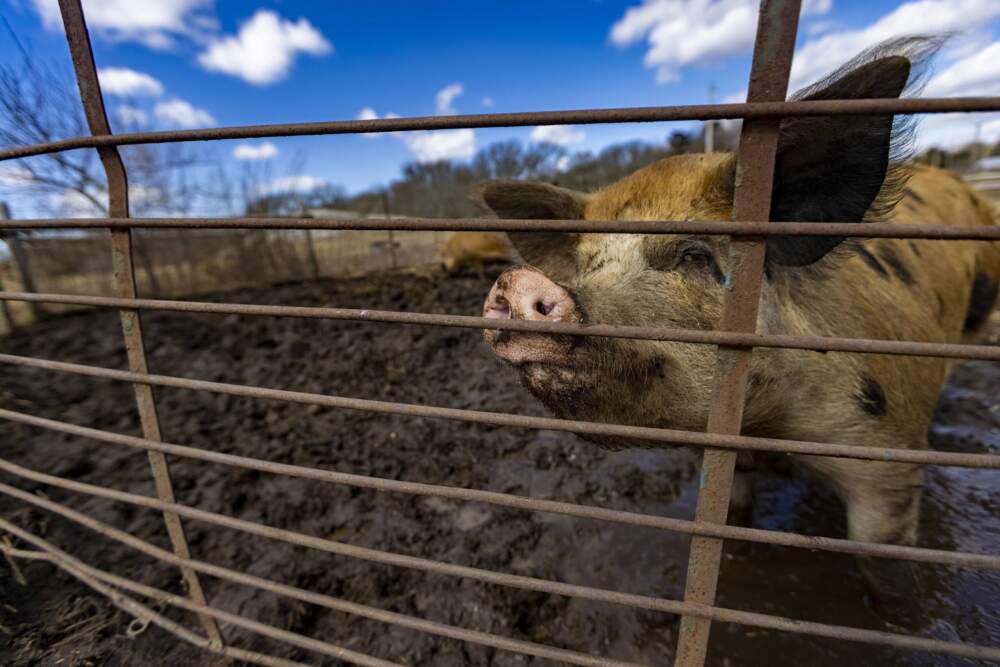Advertisement
Another lawsuit challenges pending Massachusetts law on pork production

A new lawsuit is challenging a key part of a ballot question passed by Massachusetts voters in 2016 to give pigs more space on farms. But animal rights activists are urging the state to put the law into effect now.
The implementation of the law had been paused after a restaurant group filed a lawsuit arguing Massachusetts should wait until the Supreme Court ruled on a similar law in California.
Both states would require pork produced outside the state — but sold within — also meet the new living space standards.
In May, the Supreme Court ruled the California law was constitutional, and did not violate what's known as the "dormant commerce clause." But Massachusetts Attorney General Andrea Campbell held off on implementing the Bay State's law while her office continued discussions with the plaintiffs.
Midwest pork producers including Triumph Foods have filed a new lawsuit against Campbell, arguing it violates another part of the Constitution, the Supremacy Clause, which states that federal law is the highest law of the land and takes priority over conflicting state laws.
Wayne Pacelle, who leads Animal Wellness Action, called the lawsuit one more attempt by producers to delay and thwart implementation of the restrictions.
Pacelle said Massachusetts residents voted overwhelmingly "to stop the extreme confinement of pigs on factory farms."
"These delaying tactics are really injurious to the people of Massachusetts," he said. "How are we filing these lawsuits after the Supreme Court decided the case?"
Campbell's office declined comment, citing pending litigation.
In an email, the head of the restaurant group that halted the implementation of the law while said there are still issues that were not addressed in the high court's decision.
The 2016 ballot question also put restrictions on egg sales in Massachusetts, essentially requiring them to be produced in "cage-free" facilities. That took effect in 2022 after lawmakers made changes to the voter-approved law.
Advertisement
This story is a production of the New England News Collaborative. It was originally published by New England Public Media.